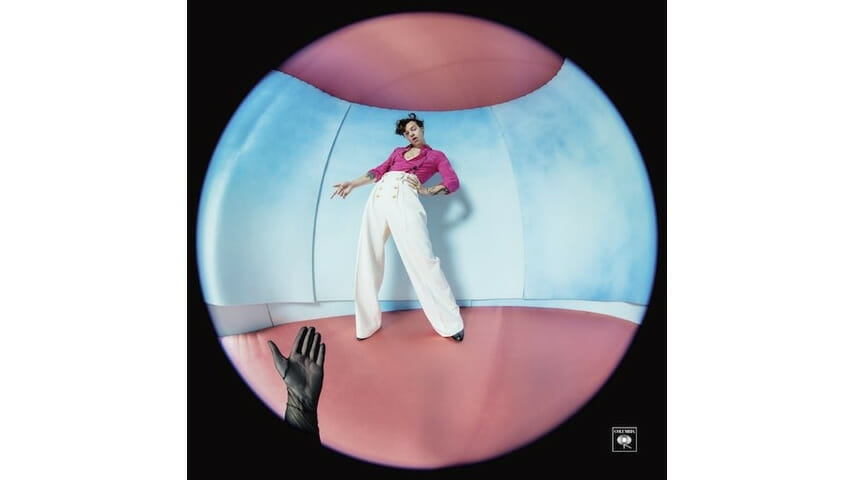Harry Styles Rejects Labels on the Imperfect, Still-Satisfying Fine Line
The singer’s second solo LP is a reminder that he’ll never fit the narratives thrust upon him

Harry Styles is a frustrating figure because he’s not easily pinned down. When he released the steamy video for single “Lights Up,” on Oct. 11 (a.k.a. National Coming Out Day), it seemed like he was making some kind of statement on his sexuality. It’s not a totally outlandish concept—he’s surrounded by naked bodies of all genders in the orgy-like video. To make matters more interesting, the 25-year-old’s wardrobe has become increasingly androgynous throughout the year: Early last month, he donned a gender-neutral sheep sweater-vest, and the internet nearly imploded (it’s a very adorable sweater). In August, a waxed-and-primped Styles blew us kisses from the pages of Rolling Stone and told Rob Sheffield his new album Fine Line is “all about having sex and feeling sad.” Yet, he remains tight-lipped about the sexual specifics, even on the record itself. Could he possibly be bisexual? Or is he just an especially spritzy brand of metro? And does it matter either way?
Fine Line doesn’t really do much to demystify the ambiguous former One Direction frontman, but the fact that he refuses to adhere to any one identity is what makes this brisk record so wonderful. It’s almost like Styles is trolling us. He knows we’re all thirsty for the juice on his sexual identity, but rather than serve us the libations over ice with a splash of lime, he dumps a bucket of unassuming love songs on our heads, not unlike anything you’d hear on any pop album by anyone. These songs are blissfully unremarkable. The satisfaction in hearing them isn’t in the information gleaned, but, rather, in the joy of watching this young solo star stake his claim as an artist and as an icon. Fine Line is its own entity separate from Styles’ actual personal life, but it’s a riveting entry point to the next phase of his persona: the male pop star who rejects gender and celebrity conventions while simultaneously polishing a conventional pop sound, and becoming unattainably cool in the process. Harry Styles is an “it” guy now.
But he still doesn’t fit the narrative laid out for him by the media on Fine Line, so the listener is forced to seek fulfillment between the lines—something that could actually be good for Styles at this point in his career. Maybe the record isn’t an autobiography, or even a portrait, but that’s OK: The songs themselves do enough aesthetic handiwork to make for a pleasant, if not always challenging, listen. Album opener “Golden” recalls the best of One Direction: dizzy pop passion toned down ever so slightly by loose acoustics, a sound the then-teen British heartthrobs mastered on 2014’s FOUR. “Watermelon Sugar” is perhaps the most traditional pop song on Fine line, bursting with Prince-y basslines and an easily repeatable chorus. “Watermelon” has been a dirty word pretty much ever since Beyoncé likened it to oral sex back in 2013, so Styles’ references throughout the song to various fruits (especially that titular “watermelon sugar high”) are more than a tad on-the-nose.
-

-

-

-

-

-

-

-

-

-

-

-

-

-

-

-

-

-

-

-

-

-

-

-

-

-

-

-

-

-

-

-

-

-

-

-

-

-

-

-








































